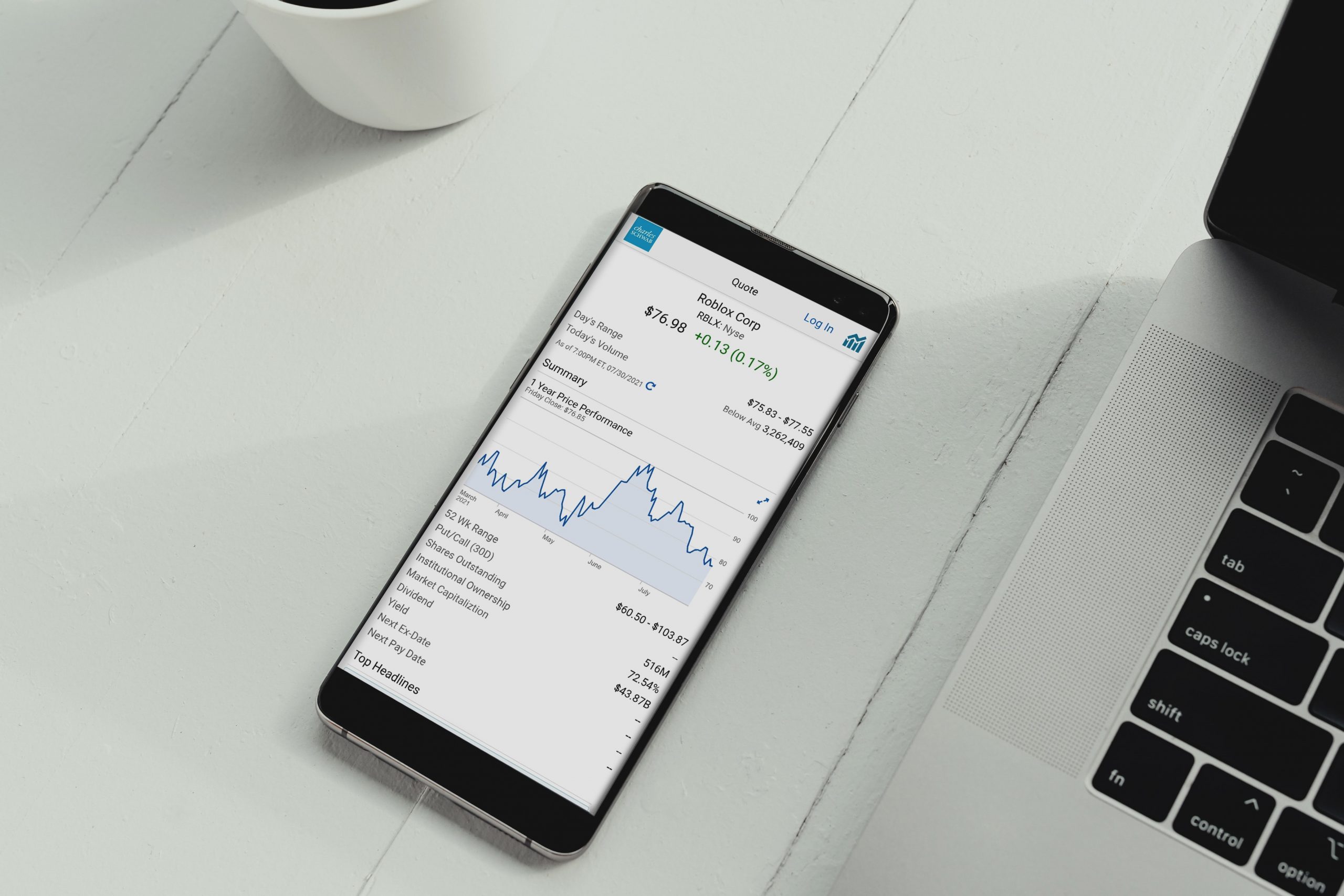As the world becomes increasingly digital and connected, businesses are realizing the importance of having an online presence. In today’s market, having an E-commerce app has become essential for businesses looking to reach a wider audience and increase their sales. However, many business owners are unsure about the cost of building an E-commerce app, especially in a bustling city like London, UK. In this article, we will dive deep into the factors that influence the cost of E-commerce app development and provide insights into the average cost in London. We will also explore ways to reduce development costs and discuss successful E-commerce apps built in London. So, if you’re a CTO, founder, or tech leader looking to build an app in London, read on to find out everything you need to know.
Understanding the Basics of E-commerce App Development
Before we delve into the cost of building an E-commerce app in London, it’s important to have a clear understanding of what an E-commerce app actually is and why it’s important in today’s market.
E-commerce, short for electronic commerce, refers to the buying and selling of goods and services over the internet. It has become an integral part of the modern business landscape, allowing businesses to reach a global audience and consumers to shop conveniently from the comfort of their homes.
An E-commerce app is a mobile application that allows users to browse and purchase products or services directly from a business. It provides a convenient and user-friendly platform for customers to explore products, make secure payments, track orders, and enjoy a seamless shopping experience.
What is an E-commerce App?
An E-commerce app is more than just a tool for online shopping. It is a gateway that connects businesses and consumers, enabling transactions to occur smoothly and efficiently. With the rise of smartphones and mobile devices, mobile apps have become an essential part of the digital economy.
Through an E-commerce app, businesses can showcase their products or services, provide detailed information, and offer personalized recommendations based on customer preferences. Customers, on the other hand, can easily search for products, compare prices, read reviews, and make informed purchasing decisions.
Importance of E-commerce Apps in Today’s Market
E-commerce apps have revolutionized the way businesses operate and connect with their customers. With the rise of smartphones and mobile devices, people are increasingly turning to apps for their shopping needs. According to recent statistics, mobile commerce accounts for a significant portion of global E-commerce sales. In fact, mobile E-commerce sales are projected to reach a whopping $3.56 trillion by 2021.
The growing popularity of E-commerce apps can be attributed to several factors. Firstly, they offer convenience and accessibility. With just a few taps on their smartphones, customers can browse through a wide range of products, place orders, and have them delivered to their doorstep. This eliminates the need to visit physical stores, saving time and effort.
Moreover, E-commerce apps provide a personalized shopping experience. By analyzing customer data and preferences, businesses can tailor product recommendations and offers to individual users, enhancing customer satisfaction and loyalty. This level of personalization is not easily achievable in traditional brick-and-mortar stores.
In addition, mobile apps offer improved customer engagement and loyalty. Through push notifications, businesses can keep customers informed about new products, discounts, and promotions. This direct communication channel helps build a strong relationship between businesses and their customers, leading to repeat purchases and increased customer lifetime value.
Efficient inventory management is another advantage of E-commerce apps. With real-time inventory tracking, businesses can ensure that products are always in stock and avoid overselling or disappointing customers. This not only improves operational efficiency but also enhances customer trust and satisfaction.
Lastly, E-commerce apps streamline the checkout process. By integrating secure payment gateways, customers can make quick and hassle-free transactions, reducing cart abandonment rates. The ability to save payment information and shipping details further simplifies future purchases, encouraging repeat business.
From our experience at WeSoftYou, a leading software development company with a proven track record in building apps, we can confidently say that investing in an app can yield significant returns for businesses of all sizes. The key is to understand the unique needs and preferences of your target audience and develop an app that delivers a seamless and engaging shopping experience.
Factors Influencing the Cost of E-commerce App Development
Now that we have established the importance of E-commerce apps, let’s explore the key factors that influence the cost of developing an E-commerce app in London.
Developing an E-commerce app involves a multitude of factors that contribute to its overall cost. From app complexity and features to design and user interface, every aspect requires careful consideration and expertise. In this expanded version, we will delve deeper into these factors and shed light on the intricacies involved in the app development.
App Complexity and Features
The complexity of your mobile app and the features you want to incorporate play a significant role in determining the development cost. If your app requires advanced functionalities such as integration with third-party systems, real-time chat support, or AI-powered recommendations, it will involve more complex development work and consequently, a higher cost.
Developing an app with advanced features requires a skilled team of developers who can understand your business requirements and translate them into functional solutions. They need to have expertise in integrating various systems and technologies to ensure seamless operation and user experience.
Moreover, the complexity of the app’s architecture and the scalability requirements also impact the development cost. Building a robust and scalable app infrastructure requires meticulous planning and efficient coding practices.
Design and User Interface
A visually appealing and intuitive user interface is crucial for the success of any mobile app. Creating an engaging design that reflects your brand identity and provides a seamless user experience requires careful planning and expertise. The cost of design and user interface development can vary depending on the complexity of your app’s design requirements.
Designing an app involves various elements such as wireframing, prototyping, graphic design, and user experience testing. Each of these steps requires attention to detail and collaboration between designers, developers, and stakeholders to ensure the app’s design aligns with your brand image and resonates with your target audience.
The complexity of the design, including the number of screens, custom animations, and interactive elements, can influence the development cost. Additionally, ensuring responsiveness across different devices and platforms adds another layer of complexity to the design process.
Backend Infrastructure and Security
Building a robust backend infrastructure to handle the complexities of an app is essential. This includes setting up secure payment gateways, managing inventory, handling customer data, and ensuring high performance and scalability. The level of security and the technology stack used can impact the cost of development.
Developing a secure backend infrastructure involves implementing industry-standard security protocols, encryption techniques, and secure data storage practices. This ensures the protection of sensitive customer information and prevents unauthorized access or data breaches.
Furthermore, integrating payment gateways and other third-party systems requires expertise in API integration and compliance with relevant regulations. The complexity of these integrations and the level of customization required can affect the development cost.
Scalability is another crucial aspect of backend infrastructure. As your E-commerce app grows and attracts more users, it should be able to handle increased traffic and transactions without compromising performance. Building a scalable infrastructure involves efficient database design, server architecture, and caching mechanisms, which can contribute to the development cost.
At WeSoftYou, we understand the intricacies of mobile app development and have the technical expertise to handle complex projects. Our team of experienced developers and designers will work closely with you to understand your requirements and deliver a high-quality app that exceeds your expectations.
Average Cost of E-commerce App Development in London
Now that we have a better understanding of the factors that influence the cost of E-commerce app development, let’s take a closer look at the average cost in London.
Developing a mobile app is a complex process that involves multiple stages, each with its associated costs. From planning and requirements gathering to launching and deployment, every step requires careful consideration and investment. Let’s delve into each stage and explore their approximate costs:
Cost Breakdown by Development Stages
The first stage of E-commerce app development is planning and requirements gathering. This crucial step involves defining the scope of the project, identifying the target audience, and outlining the features and functionalities of the app. The cost for this stage typically ranges from £1,000 to £3,000.
Once the planning stage is complete, the next step is designing the user interface. This includes creating wireframes, mockups, and visual designs that align with the brand identity and user experience. The cost for the design and user interface stage can vary between £3,000 and £6,000.
Backend development is another critical stage in the app development. It involves building the server-side infrastructure, setting up databases, and integrating payment gateways and other essential functionalities. The cost for backend development usually falls in the range of £5,000 to £10,000.
Frontend development focuses on implementing the visual elements and user interactions of the app. This includes coding the user interface, integrating APIs, and ensuring cross-platform compatibility. The cost for frontend development typically ranges from £5,000 to £8,000.
Testing and quality assurance are crucial to ensure that the app functions as intended and provides a seamless user experience. This stage involves conducting various tests, including functional testing, usability testing, and performance testing. The cost for testing and quality assurance can vary between £2,000 and £4,000.
Finally, launching and deployment involve preparing the app for release and making it available to users. This includes app store submission, server setup, and configuration. The cost for launching and deployment generally falls in the range of £1,000 to £2,000.
It’s important to note that these are approximate costs and can vary depending on the complexity and scale of your app. Additionally, ongoing maintenance and updates should also be factored into your budget to ensure the app remains up-to-date and secure.
| Cost Component | Estimated Cost Range (in GBP) |
|---|---|
| Development | £100,000 – £500,000 |
| Design | £20,000 – £100,000 |
| User Interface (UI) Design | £20,000 – £100,000 |
| User Experience (UX) Design | £20,000 – £100,000 |
| Payment Integration | £30,000 – £150,000 |
| Inventory Management | £20,000 – £100,000 |
| Product Showcasing | £10,000 – £50,000 |
| Search Functionality | £10,000 – £50,000 |
| Shopping Cart Features | £10,000 – £50,000 |
| Order Management | £20,000 – £100,000 |
| Customer Accounts | £10,000 – £50,000 |
| Testing | £10,000 – £50,000 |
| Deployment | £5,000 – £20,000 |
| Maintenance and Support | £50,000 – £200,000 |
| Total | £315,000 – £1,370,000 |
Comparison with Other Major Cities in the UK
When it comes to the cost of mobile app development, London is known for its higher costs compared to other major cities in the UK such as Manchester, Birmingham, or Glasgow. This can be attributed to various factors including the higher living costs in London, the availability of experienced developers, and the competitiveness of the market.
However, despite the higher costs, building an E-commerce app in London offers various advantages. One of the significant advantages is access to a vast pool of talent. London is home to numerous skilled developers and tech professionals, making it easier to find the right expertise for your project.
Another advantage of developing a mobile app in London is the thriving tech ecosystem. The city is a hub for innovation and entrepreneurship, with numerous tech events, meetups, and networking opportunities. This ecosystem provides a supportive environment for app development, offering access to resources, mentorship, and potential collaborations.
Additionally, being located in London puts you in close proximity to potential clients and investors. The city attracts businesses from various industries, providing ample opportunities to showcase your app and forge valuable partnerships.
In conclusion, while the cost of E-commerce app development in London may be higher compared to other cities in the UK, the advantages it offers in terms of talent availability, tech ecosystem, and networking opportunities make it a compelling choice for building your app.
Choosing the Right App Development Company in London
Now that you have a better understanding of the cost of E-commerce app development in London, it’s crucial to choose the right app development company to bring your vision to life. The success of your app largely depends on the expertise and experience of the development team.
When it comes to selecting an app development company, there are several factors to consider. One of the most important factors is evaluating the company’s portfolio of past projects. By looking at their portfolio, you can get a sense of their capabilities and the quality of their work. It’s important to choose a company that has experience in building E-commerce apps, as they will have a better understanding of the unique challenges and requirements of such projects.
WeSoftYou is an excellent example of an app development company that has a strong portfolio in building apps. They have successfully developed numerous mobile apps for clients around the globe, helping businesses achieve their goals and drive online growth. Their expertise in this area makes them a reliable choice for your app development needs.
In addition to evaluating the company’s portfolio, it’s also important to understand their pricing structure. Different companies have different pricing models, ranging from fixed-price contracts to time and material agreements. It’s crucial to choose a pricing structure that aligns with your budget and project requirements.
WeSoftYou, for instance, offers flexible pricing options and transparent cost estimates. This means that you can have a clear understanding of the costs involved in developing your app right from the start. Their transparent pricing ensures that there are no hidden fees or surprises along the way, giving you peace of mind and confidence in your investment.
Furthermore, when choosing an app development company, it’s essential to consider their level of communication and collaboration. A good development team should be responsive and willing to listen to your ideas and requirements. They should also provide regular updates on the progress of your app development and be open to incorporating any changes or feedback you may have.
WeSoftYou prides itself on its excellent communication and collaboration skills. They understand the importance of keeping clients informed and involved throughout the development process. Their team of experts will work closely with you to ensure that your vision is brought to life in the most effective and efficient way possible.
In conclusion, choosing the right app development company in London is a crucial step in bringing your app to life. By evaluating the company’s portfolio, understanding their pricing structure, and considering their level of communication and collaboration, you can make an informed decision that will set your app up for success.
Ways to Reduce E-commerce App Development Costs
Building an E-commerce app can be a significant investment, especially in a city like London. However, there are ways to reduce development costs without compromising on the quality of your app.
When it comes to developing an E-commerce app, there are several strategies you can employ to minimize costs and maximize efficiency. By carefully considering your options and making informed decisions, you can create a successful app without breaking the bank.
Opting for a Minimal Viable Product (MVP)
Developing a minimal viable product (MVP) allows you to launch your app with core features and gather user feedback before investing in additional functionalities. This not only helps in saving costs but also enables you to validate your business idea and make informed decisions based on user insights.
By focusing on the essential features that provide value to your users, you can avoid unnecessary development costs associated with building complex and extensive functionalities. This approach allows you to test the market and gather valuable feedback, which can guide your future development efforts.
Furthermore, an MVP allows you to prioritize your development efforts and allocate resources more efficiently. By starting with a lean version of your app, you can identify the most critical features and refine them based on user feedback, ensuring that you are delivering a product that meets the needs and expectations of your target audience.
Outsourcing vs In-house Development
Deciding whether to outsource app development or build an in-house team can have a significant impact on costs. Outsourcing to a reputable development company like WeSoftYou can help you save on hiring and infrastructure costs while benefiting from their expertise and experience in app development.
Outsourcing app development allows you to tap into a global talent pool, accessing skilled professionals who can deliver high-quality work at a fraction of the cost compared to hiring an in-house team. By partnering with a reputable development company, you can leverage their existing infrastructure and resources, eliminating the need for costly investments in hardware, software, and office space.
Additionally, outsourcing provides flexibility in scaling your development efforts. You can easily ramp up or down the team size based on project requirements, avoiding the overhead costs associated with maintaining a full-time in-house team. This allows you to allocate your budget more efficiently and focus on core business activities.
However, it is crucial to choose the right outsourcing partner to ensure successful collaboration. Conduct thorough research, read client testimonials, and evaluate their portfolio to find a development company that aligns with your goals and values.
In conclusion, reducing E-commerce app development costs is not only possible but also essential for many businesses. By adopting strategies such as developing an MVP and outsourcing development, you can create a cost-effective app that meets the needs of your target audience while staying within your budget.
Case Study: Successful E-commerce Apps Built in London
To further illustrate the potential of mobile app development in London, let’s take a look at some successful apps that have been built in the city.
App Features and Development Cost
One such app is ‘GloboMart’, an E-commerce platform that offers a wide range of products from various sellers. The app features a user-friendly interface, secure payment options, personalized recommendations, and a seamless checkout process. The development cost of ‘GloboMart’ was approximately £100,000 and it has seen significant growth in terms of user adoption and revenue.
Impact on Business Growth
‘GloboMart’ has helped businesses in London and across the UK expand their reach, reach a wider audience, and increase their online sales. By providing a user-friendly and convenient platform, the app has transformed the way businesses operate and connect with their customers.
Conclusion: Is Building an E-commerce App in London Worth the Cost?
In conclusion, building an E-commerce app in London is undoubtedly a worthwhile investment for businesses looking to thrive in the digital age. While the cost may be higher compared to other cities in the UK, the benefits of having an mobile app, such as increased reach, personalized experiences, and improved customer engagement, make it a cost-effective solution in the long run.
At WeSoftYou, we have the expertise and experience to build high-quality apps that cater to your unique business requirements. Contact us today for a free consultation or project estimation, and let us help you create an E-commerce app that drives growth and success for your business.
Read how much does it cost to build Streaming App in London.
FAQ
The development time for an app in London can vary depending on various factors such as the complexity of the app, the number of features, and the availability of resources. On average, it can take anywhere from 4 to 8 months to develop an app in London.
Yes, absolutely! At WeSoftYou, we understand the importance of brand identity and will work closely with you to ensure that your E-commerce app reflects your brand’s unique personality. From color schemes to logos and typography, we will customize every aspect of your app to align with your brand’s identity.
Yes, it’s essential to provide ongoing maintenance and support for your app to ensure its smooth functioning and security. Regular updates, bug fixes, and security patches are crucial to keep your app up to date and protect your users’ data. WeSoftYou offers comprehensive maintenance and support services to help you maintain a high-performing and secure app.






















